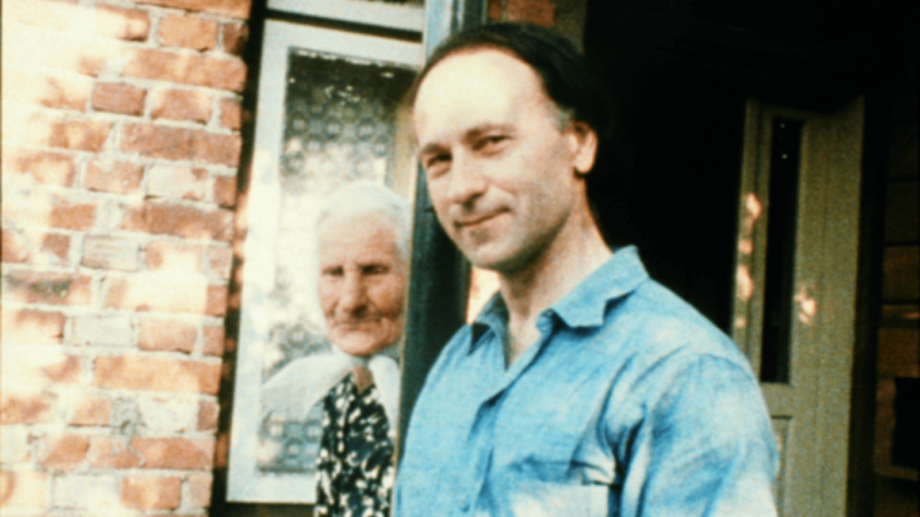Film at Lincoln Center announces Jonas Mekas, a retrospective of the Lithuanian filmmaker-director-critic-poet, co-presented with the Jewish Museum from February 17-23.
Few if any figures in the history of New York City film culture have left as large a mark as that of the Lithuanian filmmaker, critic, and poet Jonas Mekas. Rising to notoriety in the 1950s and ’60s as a champion of and mouthpiece for the New American Cinema, he founded and presided over such stalwart fixtures of the underground and avant-garde film scenes as Film Culture magazine, the Filmmakers’ Cinematheque, the Film-Makers’ Cooperative, and Anthology Film Archives. But he was also one of the 20th century’s most vital film artists, a master cine-diarist and something like a present-tense historian who documented the particulars of emigrant life in New York City. His immense oeuvre, produced across seven decades, encompasses rapturous tone poems that exalt the quotidian and transfixing portraits of the legendary artists in his orbit. Join us for a selection of Mekas’s most essential film and video works. This series is presented in conjunction with Jonas Mekas: The Camera Was Always Running, a major exhibition of his work on view at the Jewish Museum from February 18 through June 5, 2022.
Highlights of the retrospective include: Reminiscences of a Journey to Lithuania, arguably Mekas’s greatest achievement within his exploration of the film-diary form; Walden (Diaries, Notes & Sketches), perhaps Mekas’s masterpiece and the work that best embodies his lifelong filmmaking project; Lost Lost Lost, continuing where Walden and Reminiscences of a Journey to Lithuania left off—though moving backward in time—using footage shot by Mekas between 1949-63; As I Was Moving Ahead, Occasionally I Saw Brief Glimpses of Beauty, a tribute to the friendships and relationships that positioned Mekas to see the titular “brief glimpses of beauty”; The Brig, a searing adaptation of Kenneth H. Brown’s play of the same name; A Letter from Greenpoint, which Mekas considered his “first real video work,” chronicling the first time he’d had to move in over 30 years; Guns of the Trees, his lyrical feature debut, which he wrote, produced, directed, co-photographed, and edited; Paradise Not Yet Lost (Oona’s Third Year), focusing entirely on the events of 1977 and around the figure of his then-2-year-old daughter Oona; and This Side of Paradise, a collection of images and memories from pieces of summers spent in Montauk in the company of the families of Jacqueline Kennedy Onassis and her sister Lee Radziwill.
The retrospective also includes two shorts programs, the first consisting of three tributes to significant friendships in Mekas’s life (Scenes from the Life of Andy Warhol, Happy Birthday to John, and Zefiro Torna or Scenes from the Life of George Maciunas), and the second a collection of Mekas’s shorter film diaries: Notes on the Circus, Notes for Jerome, and In Between.
Proof of full vaccination is required for all staff, audiences, and filmmakers at FLC venues. FLC requires all guests to maintain face coverings consistent with the current CDC guidelines inside their spaces regardless of vaccination status. Additionally, FLC will adhere to a comprehensive series of health and safety policies in coordination with Lincoln Center for the Performing Arts and state and city medical experts, while adapting as necessary to the current health crisis. Visit filmlinc.org/safety for more information.
Organized by Dennis Lim and Dan Sullivan. Co-presented with the Jewish Museum.
Acknowledgements:
Sebastian Mekas; Anthology Film Archives; Re:Voir
In conjunction with FLC’s retrospective, Jonas Mekas: The Camera Was Always Running, on view at the Jewish Museum from February 18 through June 5, 2022, is the first U.S. museum survey of the Lithuanian-born filmmaker, poet, critic, and institution-builder who helped shape the avant-garde in New York City and beyond. The exhibition coincides with the centennial of Mekas’s birth and surveys his 70-year career. It includes 11 films, photography, and previously unseen archival materials that explore the breadth and import of Mekas’s life, art, and legacy in the field of the moving image. During the late stages of World War II, in 1944, Mekas was forced to flee his native Lithuania and was unable to return until 1971. The relationship between exile and creativity is always at the heart of his work and will be the exhibition’s central theme. Jonas Mekas: The Camera Was Always Running is organized by guest curator Kelly Taxter, with Kristina Parsons, the Leon Levy Curatorial Assistant at the Jewish Museum.
Tickets for the retrospective go on sale Friday, February 4 at noon and are $15; $12 for students, seniors (62+), and persons with disabilities; and $10 for FLC and JM members. Save with the purchase of three tickets or more. Learn more at www.filmlinc.org.
FILMS & DESCRIPTIONS
All films are directed by Jonas Mekas
All films screen at the Francesca Beale Theater (144 W. 65th St.) unless otherwise noted
As I Was Moving Ahead, Occasionally I Saw Brief Glimpses of Beauty
2000, 16mm, 288m
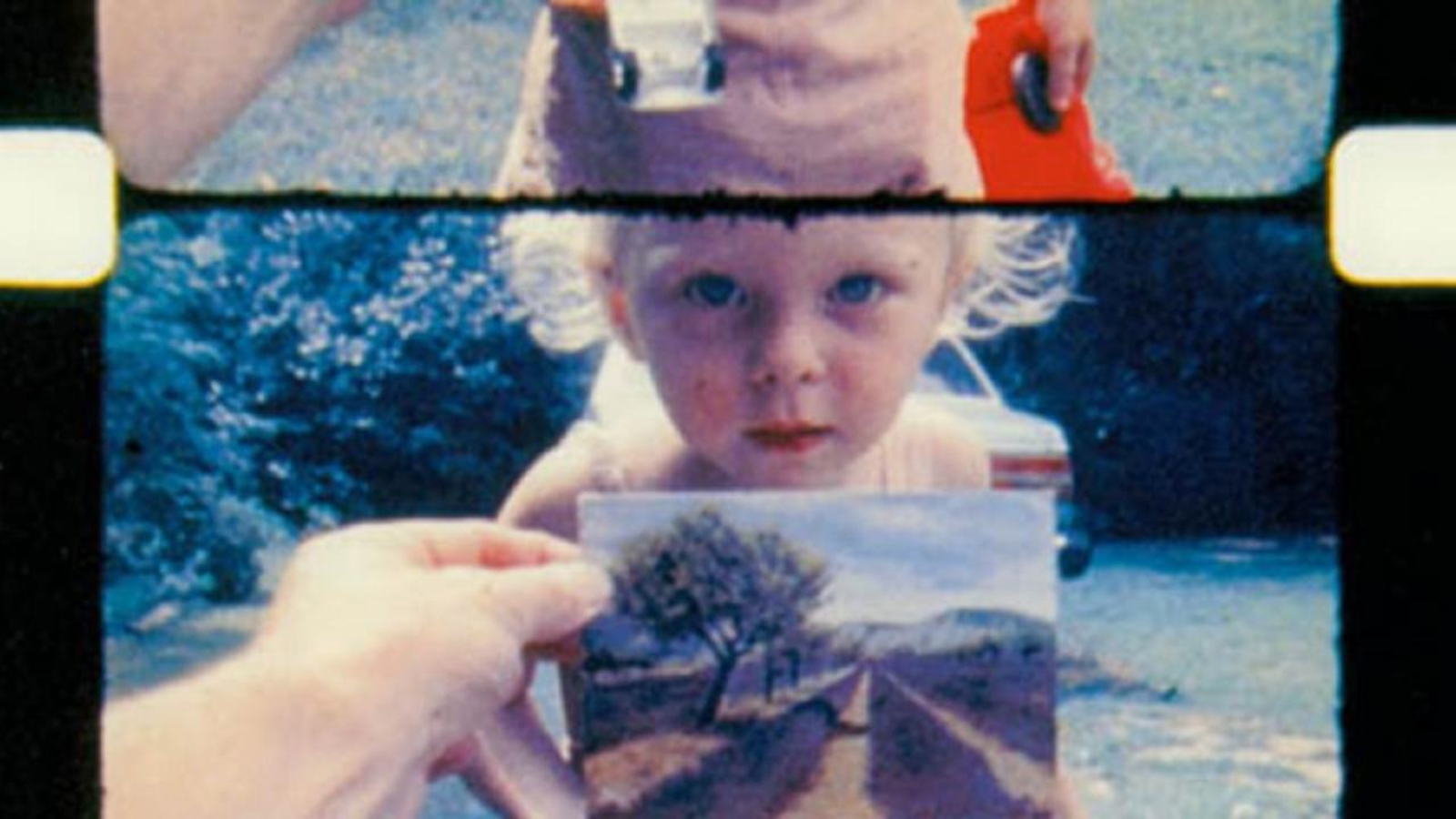
As I Was Moving Ahead, Occasionally I Saw Brief Glimpses of Beauty
Mekas’s career-spanning project of documenting his life, times, and relationships finds perhaps its grandest expression in his most monumental film diary. Covering nearly three decades of Mekas’s life—1970 to 1999—As I Was Moving Ahead is a vibrant, frenetic 16mm record of daily life, trips abroad (to France, Italy, Spain, and Austria) and domestic (Madison, WI; Cape Cod), birthday parties, picnics, his children’s first steps, the changing of the seasons. But above all else it is a tribute to the friendships and relationships that positioned Mekas to be able to see the titular “brief glimpses of beauty” in the first place—“life’s unexpected raptures” that both justify his observational filmmaking practice and provide inspiration to go on living and making his beloved “home movies.”
Sunday, February 20 at 1:00pm
The Brig
1964, 16mm, 68m
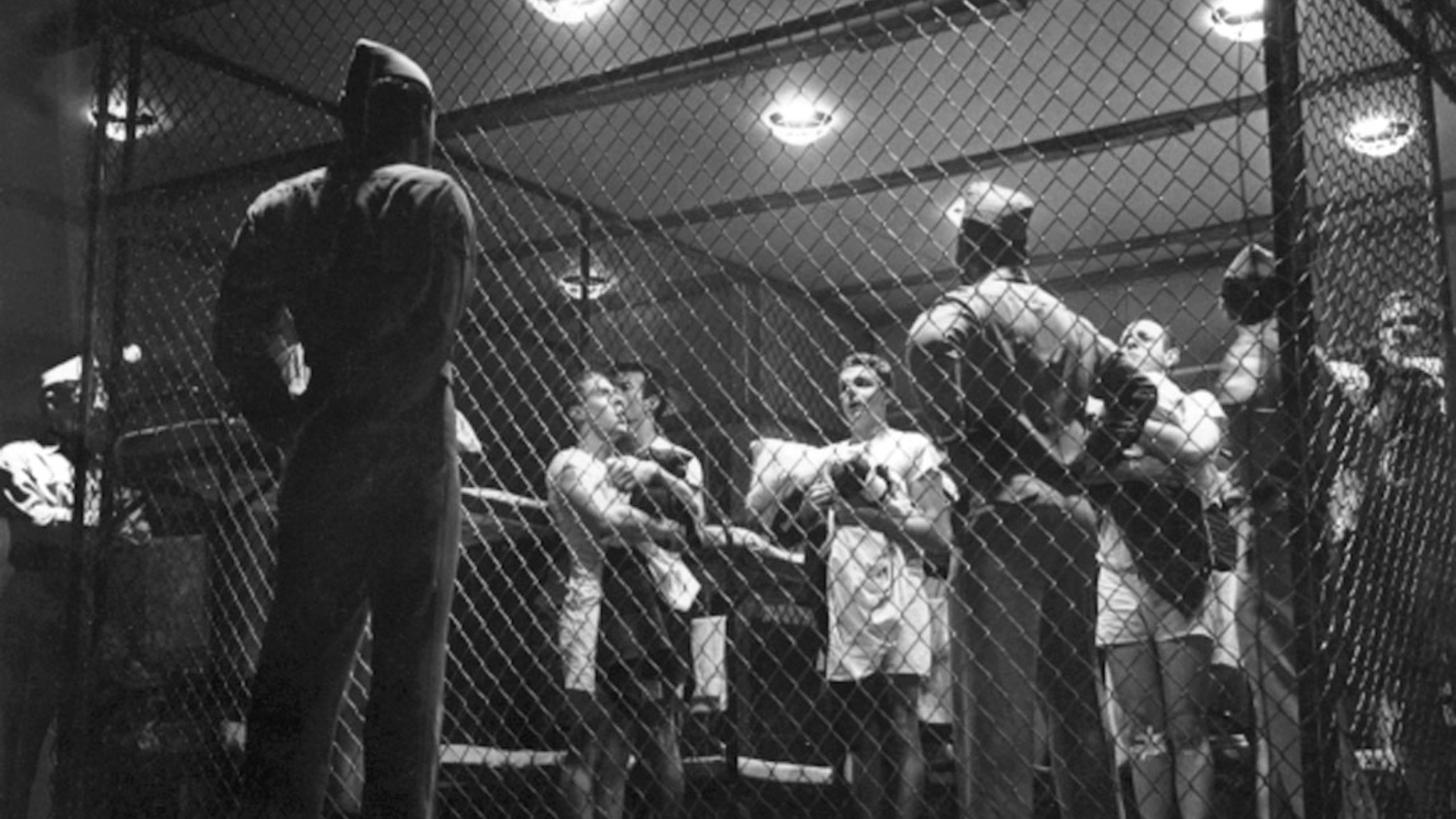
The Brig
Mekas looked to the stage for his second feature, an adaptation of Kenneth H. Brown’s play of the same name, which had been produced off-Broadway at the Living Theatre by Judith Malina and Julian Beck. A harrowing, suffocating portrait of brutality and dehumanization within a Marine Corps prison, the film chronicles the abuses and indignities suffered by 10 prisoners at the hands of a few sadistic guards across a single day. At once a seminal adaptation of experimental theater and a fierce polemic against the conjoined carceral and military-industrial complexes, this searing film is marked by, per a Time magazine write-up at the time of its premiere, “a nightmare air that suggests Kafka with a Kodak.” A selection of the 1964 New York Film Festival.
Friday, February 18 at 8:30pm
Saturday, February 19 at 3:00pm
Guns of the Trees
1962, 35mm, 75m
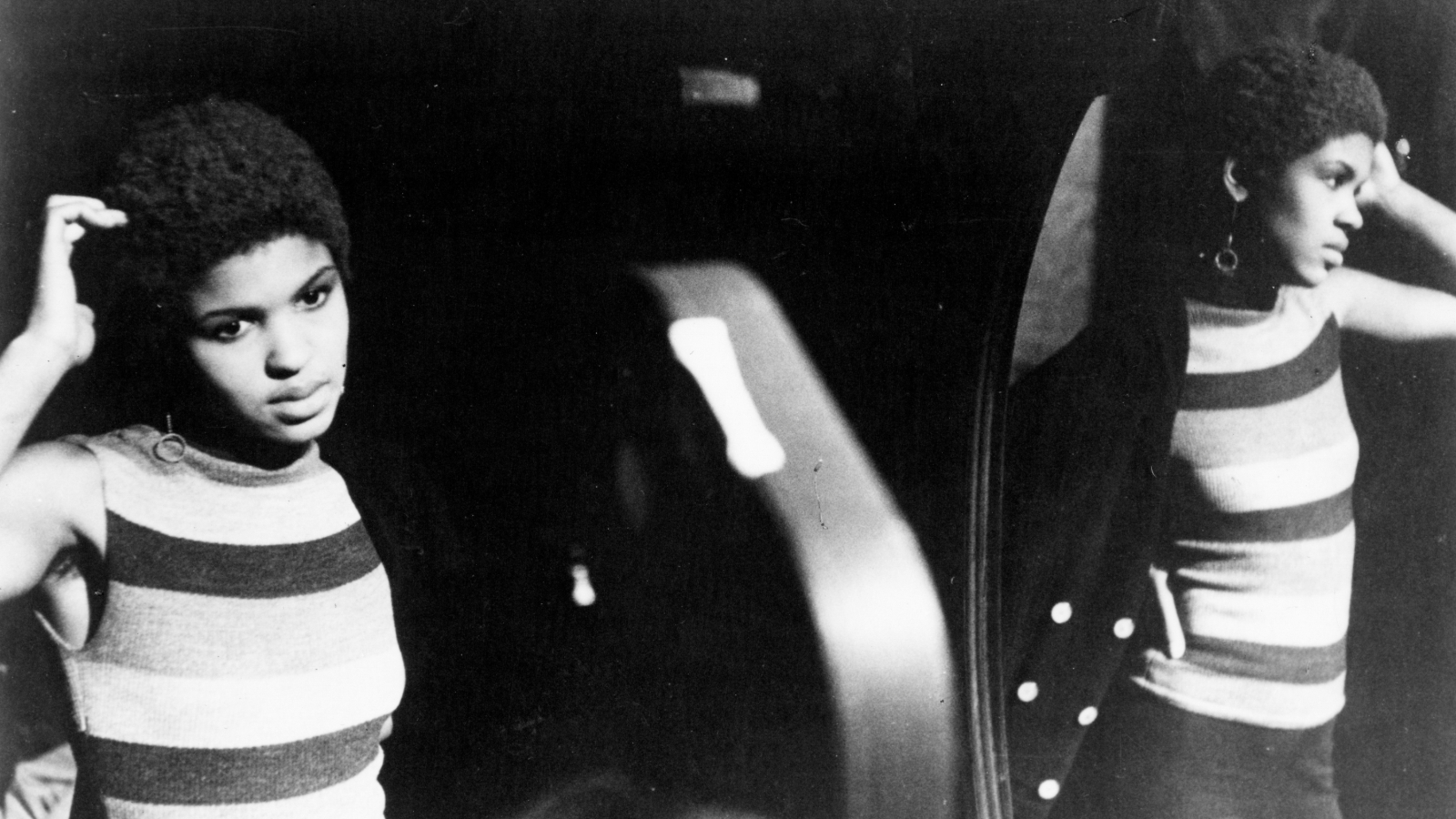
Guns of the Trees
Jonas Mekas’s first feature—which he wrote, produced, directed, co-photographed, and edited—is an entrancing snapshot of the counterculture in the early 1960s and a work of beatnik existentialism concerning the fine line between generational hope and despair. Past and present intertwine as a young woman (Frances Stillman) searches for a reason to go on living amid a bout of paralyzing depression; she encounters a succession of characters (including a cynical intellectual, played by Mekas’s brother and frequent collaborator, Adolfas) who seem to represent some chance at salvation, but the dark cloud overhead refuses to dissipate. In Mekas’s own words, his scrappy yet ambitious and above all lyrical film “deals with the thoughts, feelings, and anguished strivings of my generation, faced with the moral perplexity of our times.” Restored by Anthology Film Archives and The Film Foundation with funding provided by the Hobson/Lucas Family Foundation.
Friday, February 18 at 6:30pm
Saturday, February 19 at 1:00pm
A Letter from Greenpoint
2004, 80m
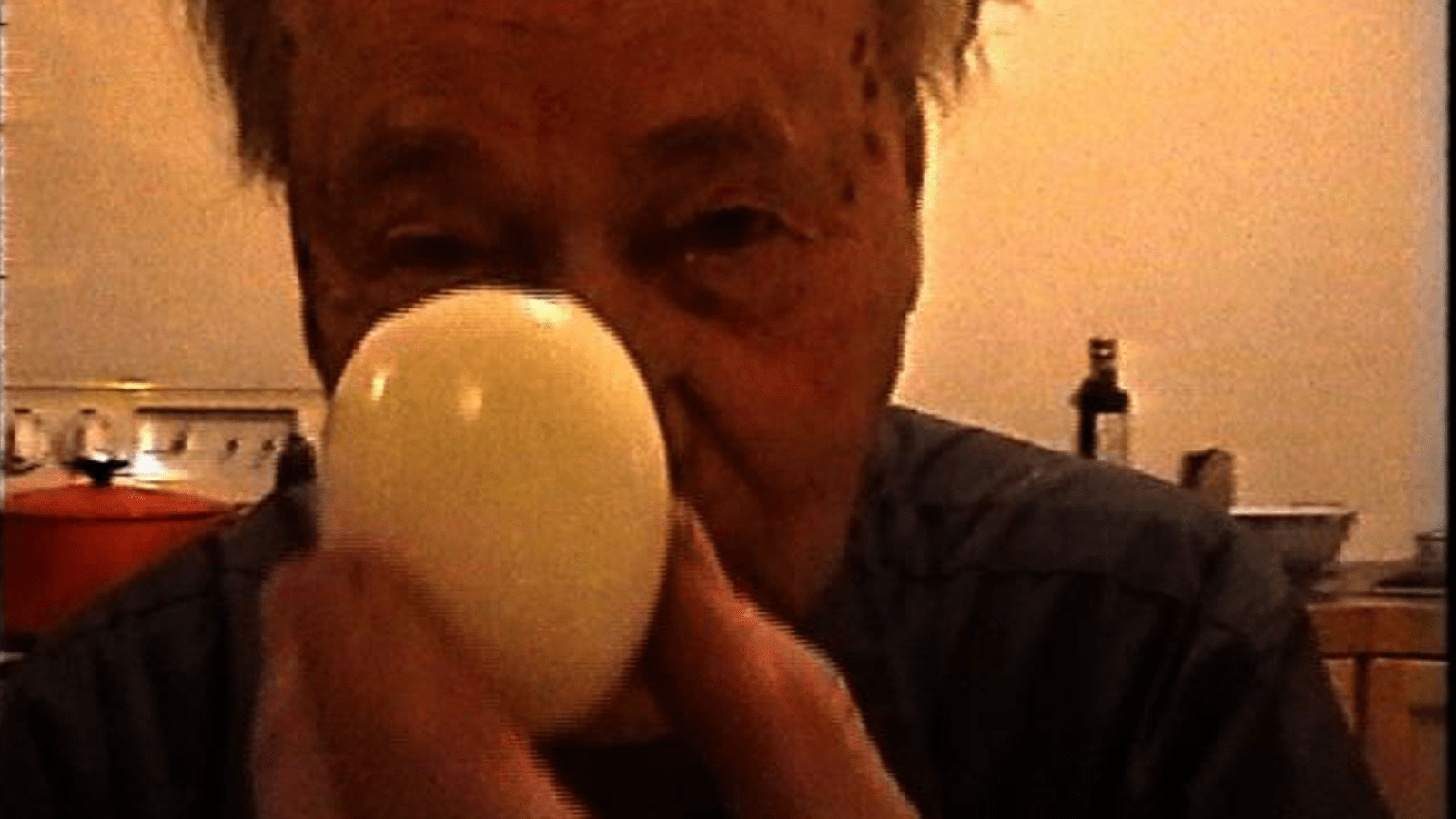
Letter from Greenpoint
In what he considered his “first real video work” (after decades of reliance on his trusty 16mm Bolex), Mekas captures a pivotal moment in his life: the first time he’d had to move in over 30 years. Giving up the SoHo loft where he raised his children, Mekas packs up and relocates to a new home in Greenpoint, Brooklyn, not far from Williamsburg, where he and his brother Adolfas had first settled over 50 years earlier upon arriving in America. A Letter from Greenpoint is a typically moving meditation that furthers key threads from Mekas’s prior work—the specific, subjective feeling of people, places, and moments; the ever-changing landscape of NYC—while also looking ahead to the future: the inevitability of change, the search for and establishment of a new home, aging, and the uprooting and replanting of oneself in a new situation marked by new faces, scenery, worries, and joys.
Sunday, February 20 at 9:00pm
Tuesday, February 22 at 6:30pm
Lost Lost Lost
1976, 16mm, 178m
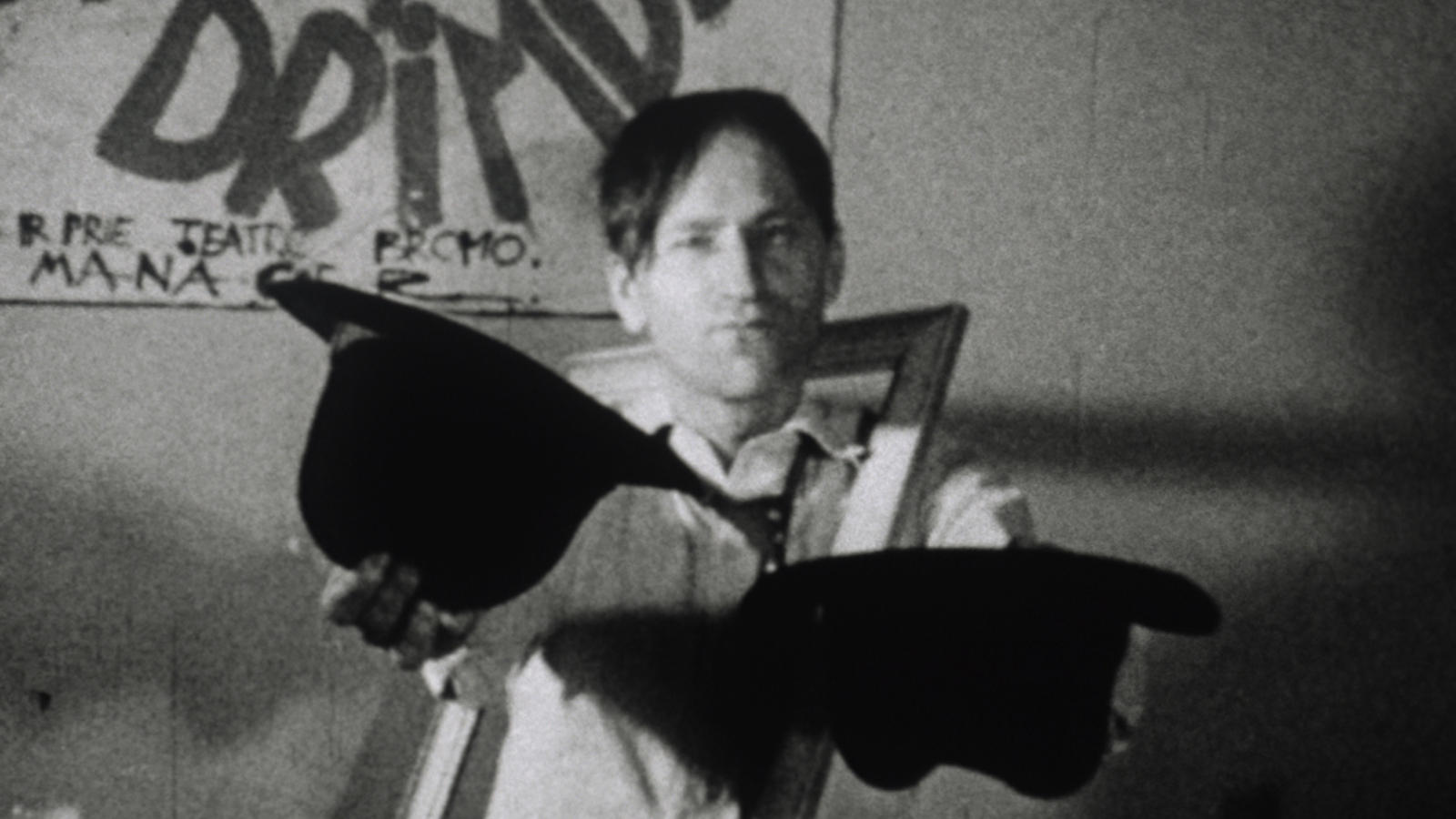
Lost Lost Lost
Continuing where Walden and Reminiscences of a Journey to Lithuania left off—though moving backward in time—Lost Lost Lost is another epic of diaristic cinema, using footage shot by Mekas between 1949-63. The film begins with Jonas leading the melancholy life of a political refugee on the streets of Williamsburg, but it soon mutates into an increasingly ecstatic document of the development of the NYC art scene in which he played a decisive, statesmanlike role. Moving from Brooklyn to Manhattan, from life in exile to the construction of a new cultural home, the meticulously assembled Lost Lost Lost is nothing short of a treasure trove of memories and images, diaries, notes, and sketches. Preserved by Anthology Film Archives through the Avant-Garde Masters program funded by The Film Foundation and administered by the National Film Preservation Foundation.
Wednesday, February 23 at 7:00pm
Paradise Not Yet Lost (Oona’s Third Year)
1979, 16mm, 96m
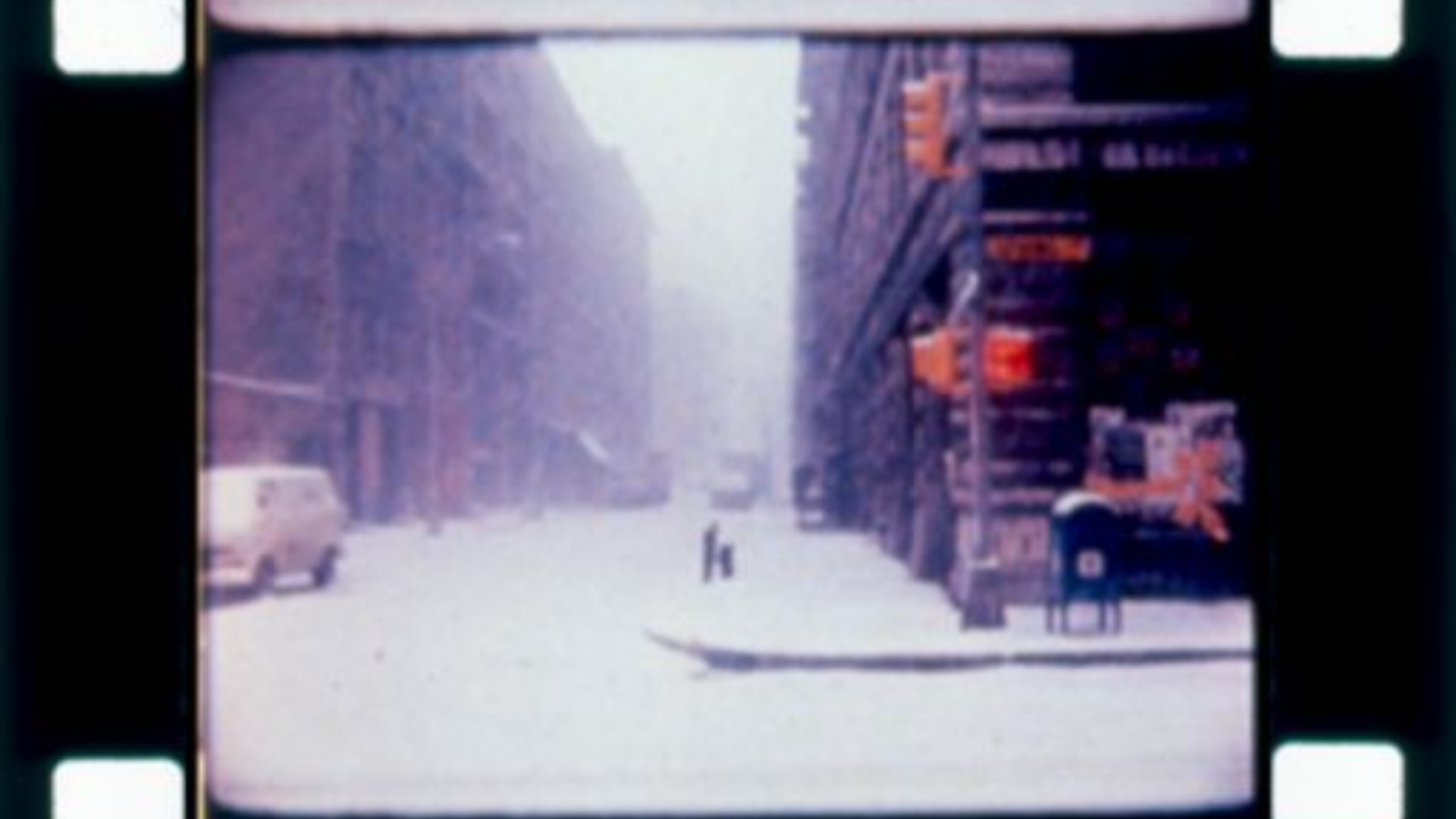
Paradise Not Yet Lost (Oona’s Third Year)
More restricted in its scope than his other, more expansive film diaries, Paradise Not Yet Lost finds Mekas focusing entirely on the events of 1977. Divided into six sections, Paradise Not Yet Lost begins in New York, with fragments of Mekas and his family’s daily life and various visits and happenings around the city; from there, the film sprawls out to encompass a trip to Sweden, another journey to Lithuania (this time with Mekas’s wife Hollis and his nearly-3-year-old daughter Oona in tow), trips to Austria (to visit Peter Kubelka and Hermann Nitsch) and Italy, and finally, a return to NYC. Throughout, Mekas movingly organizes this material around the figure of Oona, aiming to provide her with a cinematic record of this early year in her life, a time she’ll barely be able to recall as an adult.
Screening with:
This Side of Paradise
1999, 16mm, 35m
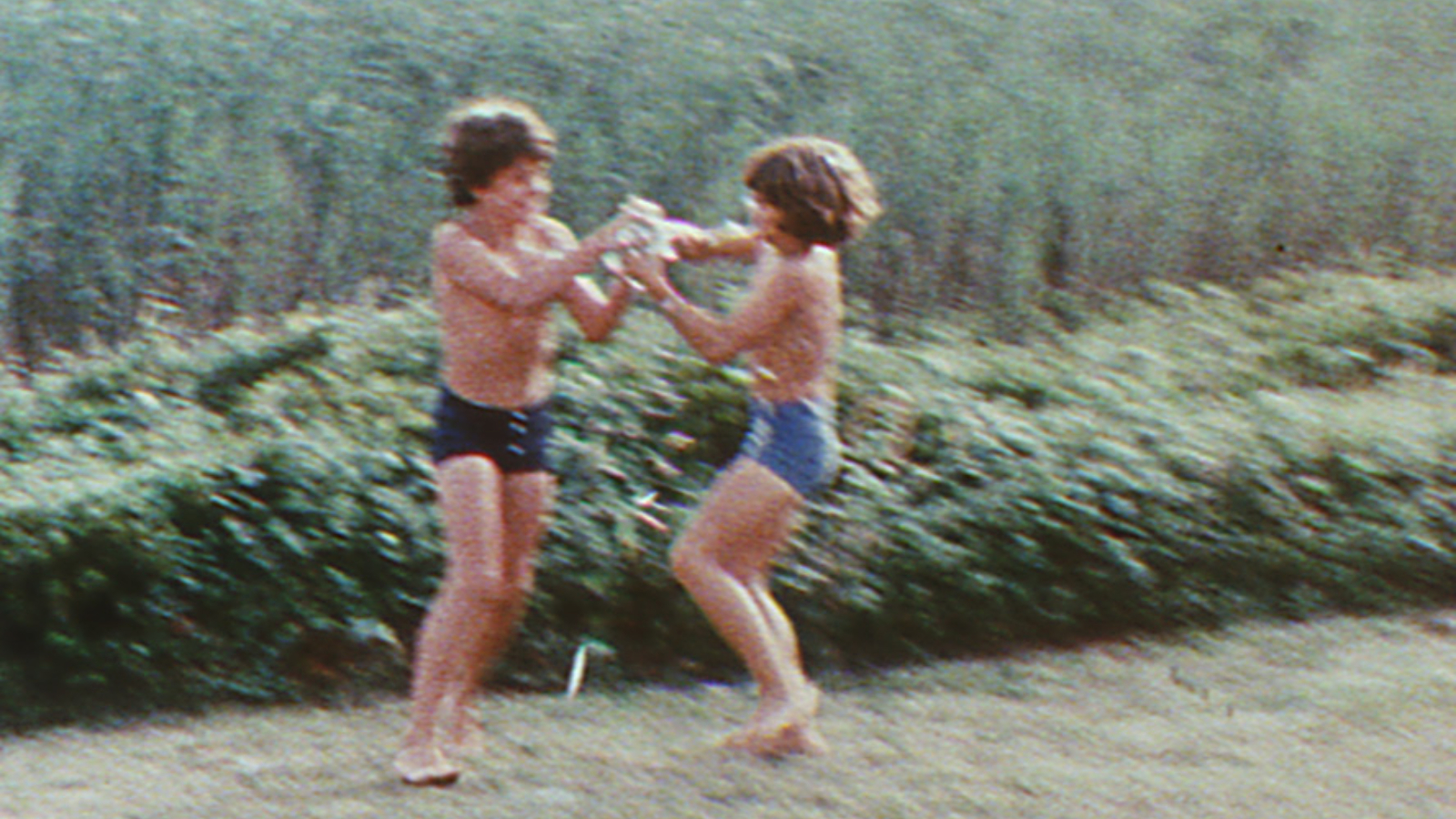
This Side of Paradise
In this short-form diary, Mekas collects images and memories from pieces of summers spent in Montauk in the company of the families of Jacqueline Kennedy Onassis and her sister Lee Radziwill, yielding a rare, candid portrait of one of America’s most famous families.
Monday, February 21 at 9:00pm
Reminiscences of a Journey to Lithuania
1971-72, 16mm-to-35mm, 82m
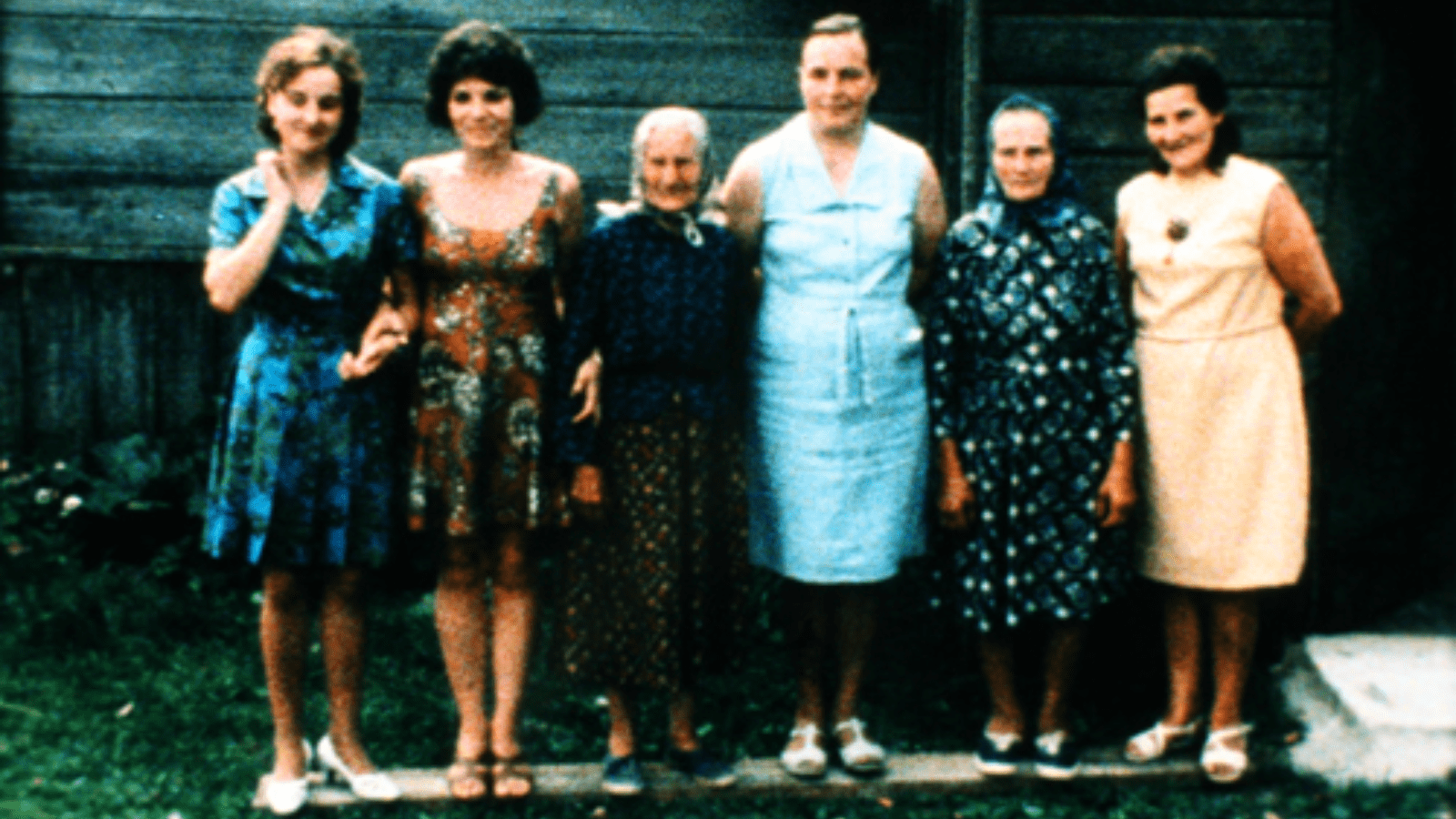
Reminiscences of a Journey to Lithuania
Documenting Mekas’s return to the Lithuanian village of his birth, Semeniškiai, for the first time since he and his brother Adolfas escaped from German labor camps and emigrated to the United States in the late 1940s, Reminiscences is arguably the greatest achievement within Mekas’s exploration of the film-diary form. We begin in Williamsburg with footage shot by Mekas with his first Bolex of his and Adolfas’s first years in exile, before skipping ahead to the brothers’ return to Lithuania in 1971, their reunions with family members, their experience of their home country as displaced people, and finally, their visit to the labor camp near Hamburg where they were imprisoned during World War II. An unceasingly poetic work on the experience of exile, Reminiscences remains a towering feat of personal filmmaking. Preserved by Anthology Film Archives with support from The Film Foundation.
Saturday, February 19 at 8:45pm
Tuesday, February 22 at 8:30pm
Walden (Diaries, Notes & Sketches)
1964-69, 16mm, 180m
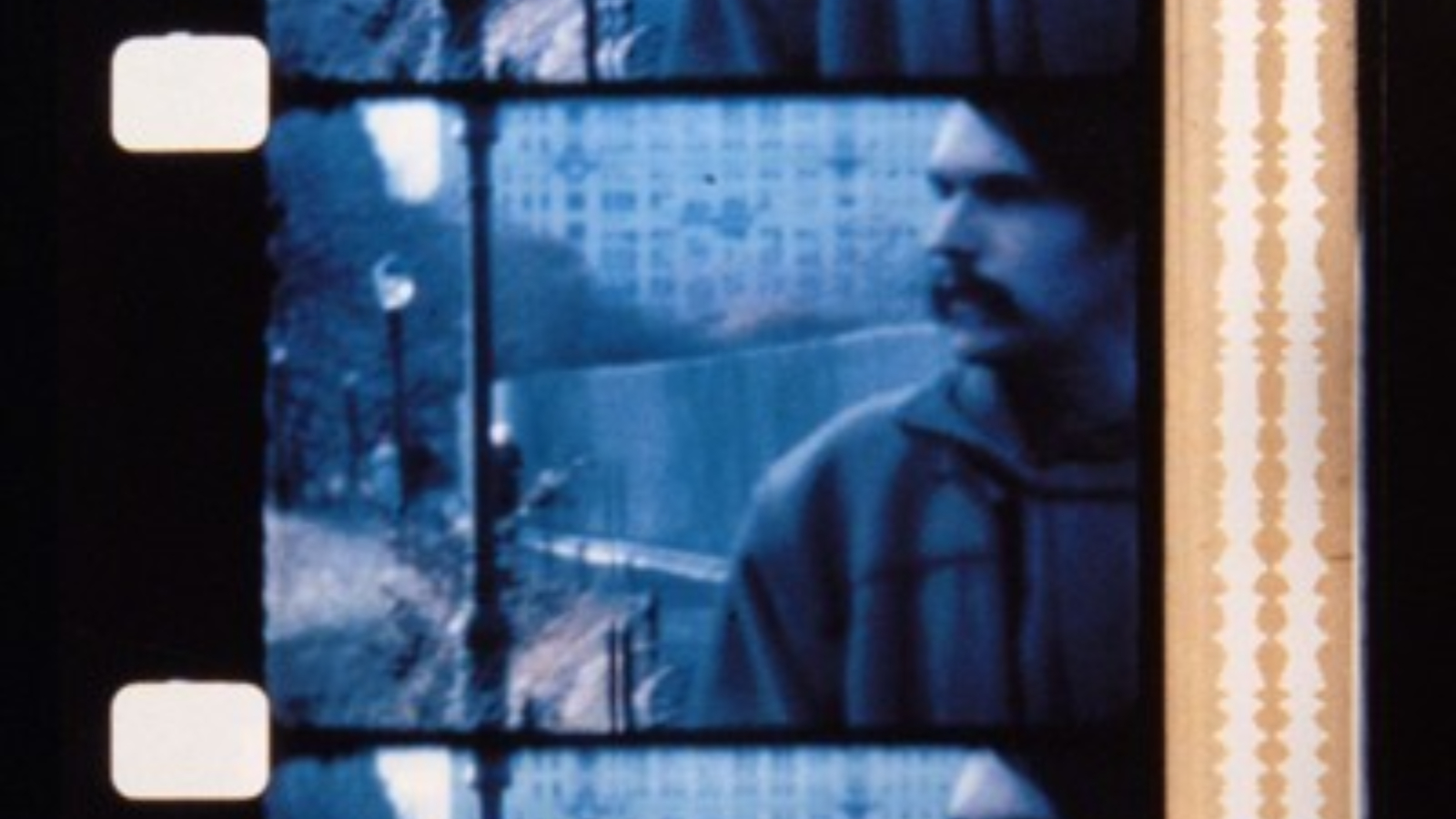
Walden (Diaries, Notes & Sketches)
Perhaps Mekas’s masterpiece and the work that best embodies his lifelong filmmaking project, this epic film-diary captures pivotal years in arts and culture in New York City, especially for the New American Cinema and the cinematic avant-garde. A kaleidoscopic chronicle of people, places, happenings, and time’s passage, Walden refracts an ocean of documentary footage through the prism of Mekas’s emotional life by way of a rigorous edited-in-camera aesthetic. The result is a work that is both a landmark cine-portrait of artists and the city in which they live and a convulsive, energetic, and radically subjective take on the documentary, composed under the sign of Mekas’s own twist on the Cartesian cogito: “I make home movies—therefore I live. I live—therefore I make home movies.”
Thursday, February 17 at 7:00pm
Wednesday, February 23 at 3:00pm
Shorts Program 1
Scenes from the Life of Andy Warhol, 1990, 16mm, 35m
Happy Birthday to John, 1995, 16mm, 24m
Zefiro Torna or Scenes from the Life of George Maciunas, 1992, 16mm, 35m
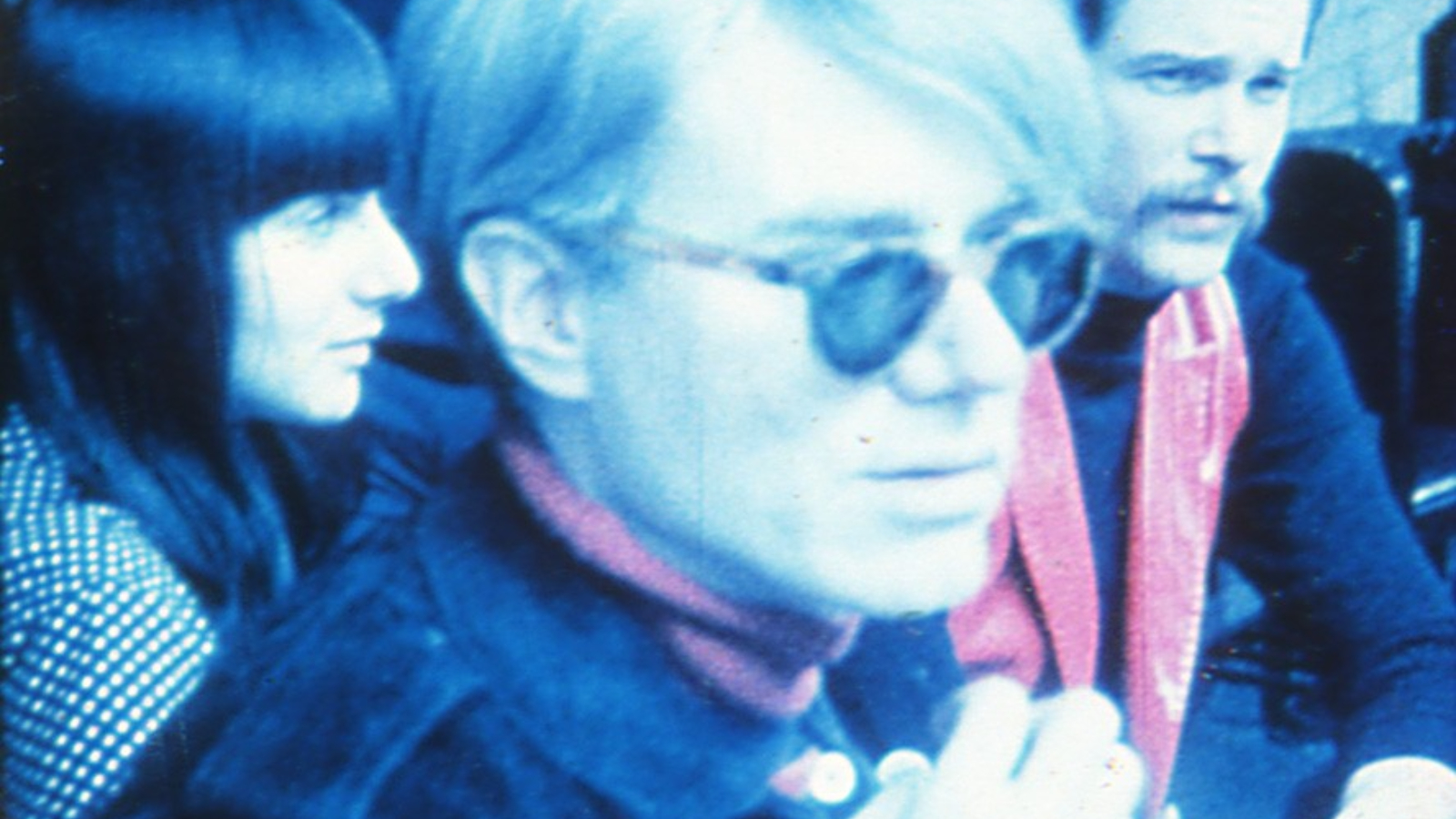
Scenes from the Life of Andy Warhol
Three tributes to three key friendships in Mekas’s life: Scenes from the Life of Andy Warhol follows Warhol across a variety of settings and situations between 1965 and 1982, featuring cameos by the Velvet Underground, Edie Sedgwick, Barbara Rubin, John Lennon and Yoko Ono, Mick Jagger, and countless others; Happy Birthday to John documents a small birthday party for Lennon, held in a hotel room in Syracuse, NY following the opening of his and Ono’s Fluxus exhibition, which was designed by artist George Maciunas; and Zefiro Torna compiles footage of Maciunas shot by Mekas over the years, arriving at an emotionally reverberant and deeply personal homage to the Fluxus founder (and fellow Lithuanian).
Sunday, February 20 at 6:30pm
Shorts Program 2
Notes on the Circus, 1966, 16mm, 12m
Notes for Jerome, 1978, 16mm, 45m
In Between: 1964-68, 1978, 16mm, 52m
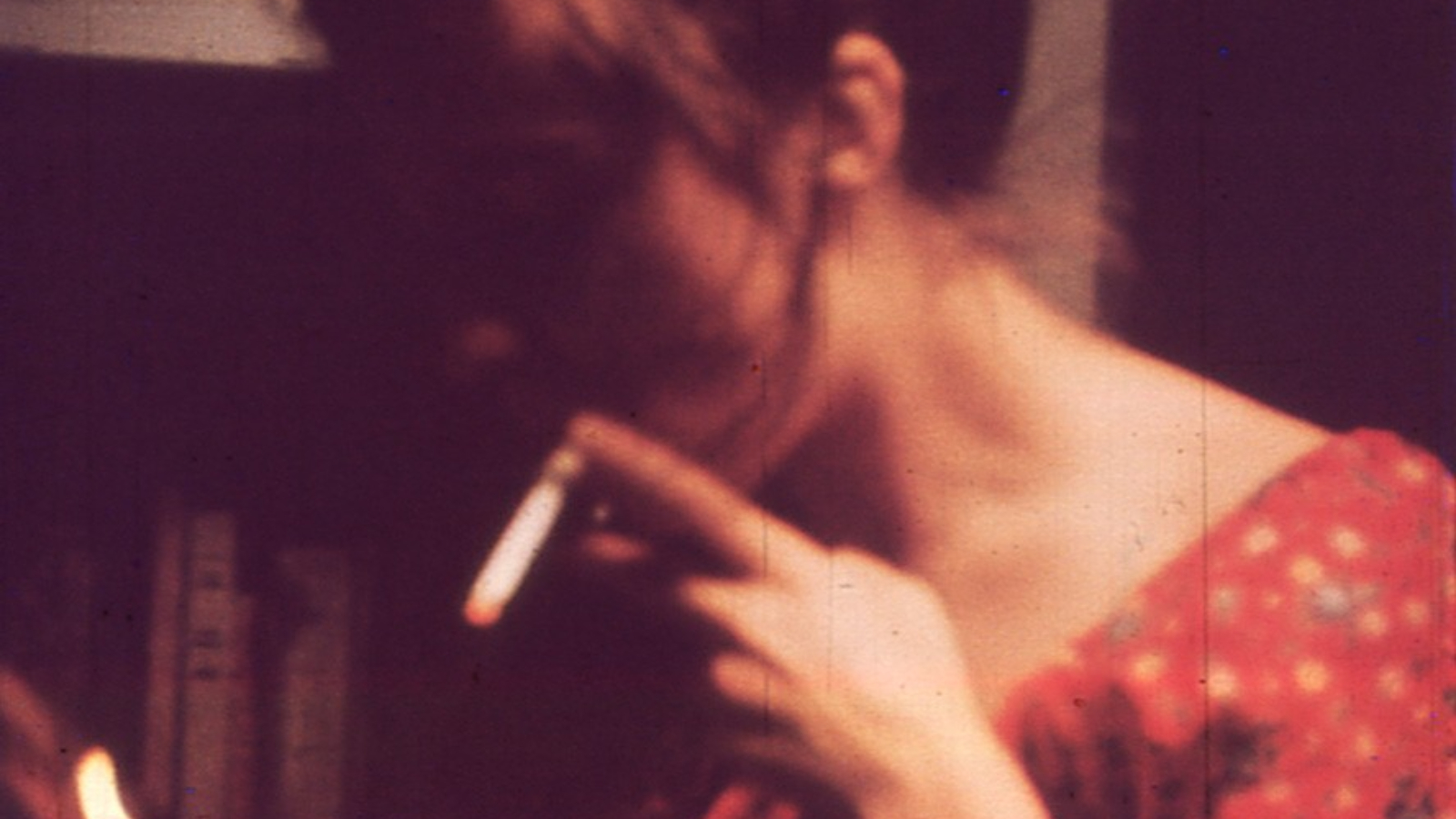
In Between: 1964-68
This program collects three of Mekas’s shorter film diaries: Notes on the Circus gathers impressions from several visits to the Ringling Bros and Barnum & Bailey Circus, ecstatically edited in-camera and suffused with wonder and movement; Notes for Jerome documents Mekas’s visits to Cassis with his friend, the filmmaker Jerome Hill, along with a coterie of Hill’s other friends (including Taylor Mead, Bernadette Lafont, and Charles Rydell), and was composed as an elegy for Hill a few years after his death in 1972; and In Between draws from footage shot for Walden, yielding an evocative snapshot of a cast of Mekas’s friends, comrades, and fellow travelers (including Salvador Dali, Richard Foreman, Shirley Clarke, Allen Ginsberg, Jack Smith, and many others). Notes for Jerome was preserved by Anthology Film Archives.
Monday, February 21 at 6:30pm


